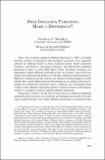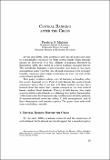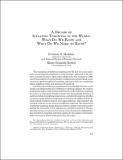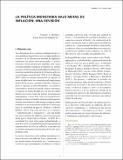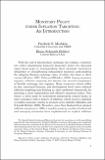Buscar
Mostrando ítems 1-5 de 5
Does inflation targeting make a difference?
Since New Zealand adopted inflation targeting in 1990, a steadily growing number of industrial and emerging economies have explicitly adopted an inflation target as their nominal anchor. Eight industrial countries and thirteen emerging economies had full-fledged inflation targeting in place in early ...
Central banking after the crisis
By the mid-2000s both academics and central banks had come to a remarkable consensus on what central banks’ basic strategy should be. However with the collapse of Lehman Brothers in September 2008 the world of central banking changed forever. The worldwide financial crisis revealed that some of the ...
A decade of inflation targeting in the world: what do we know and what do we need to know?
The emergence of inflation targeting over the last ten years represents an exciting development in central banks' approach to the conduct of monetary policy. After initial adoption by New Zealand in 1990, a growing number of central banks in industrial and emerging economies have opted for inflation ...
Política monetaria bajo metas de inflación. Una revisión
Esta breve revisión hace un recorrido por la literatura reciente sobre política monetaria bajo metas de inflación y presenta nuevos resultados analíticos y estudios empíricos en la materia. Se examinan seis áreas centrales de la investigación previa: puesta en práctica y optimalidad de los principales ...
Monetary policy under inflation targeting: an introduction
With the end of intermediate exchange rate regimes, countries are either abandoning domestic monetary policy (by choosing super-hard pegs or relinquishing their national currencies altogether) or strengthening independent monetary policymaking (by adopting floating exchange rates, of either the clean ...

